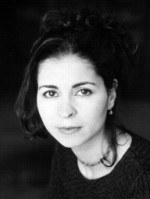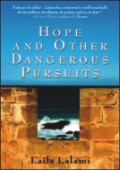|
Interview
A Conversation with Laila Lalami
Laila Lalami, Morocco-born writer and author of Hope and other Dangerous Pursuits, talks about her life and times.
Ahmede Hussain
 |
Laila Lalami |
In Hope and Other Dangerous Pursuits, we see you use a stream of narratives with the brilliance of a master. Why is this reliance on multiple narrations?
It was not a conscious choice. I had started with just one short story about a young man named Murad, an unemployed university graduate who feels emasculated by his sister's ability to provide for the family, so he decides to try his luck in Spain, and leaves the country on an inflatable boat, crossing the Straits of Gibraltar at night. As I was working on the story, I became curious about the other characters who were with him on the boat. There was Faten, a fanatically religious girl on the run from the law; Halima, a mother who takes her children with her on the boat; and Aziz, a mechanic who leaves his wife behind to try and find a job, to name just three. So I decided to write stories about each of them, and that's how the idea of multiple narratives came about, the idea of having a book in which we follow four characters' journey out of the country, and discover their lives before and after that fateful trip.
How do you see rising Islamic extremism across the globe?
I think it is the result of very specific political and economic failures that happened in the 60s and 70s. In many countries in the Muslim world, particularly in the Middle East, leftist movements did not deliver on the promises they made after independence. In addition, there was widespread, Western supported repression of these movements. These two factors created a political vacuum, which was filled by a religious discourse that continues to grow. I think the only way that this will change is from within, not through external military involvement.
Coming from a predominantly Muslim country how free do you feel as a woman and a writer?
As a Muslim woman, I'm often expected to talk about how my father or brother oppressed me, but the reality is that my father always encouraged me to study, to work, and to be independent. There are of course many problems facing Muslim women, chief among which are illiteracy, poverty, access to healthcare, family planning, and so on. There are many feminists in Muslim countries trying to bring about change within their societies; unfortunately, we are living at a time when some religious conservatives often stand in their way.
 The language you have chosen to write in is English; is their any reason behind it? The language you have chosen to write in is English; is their any reason behind it?
I wrote in Arabic and French when I was a child but English superseded those languages by the time I was in college. I was the product of a post-colonial education that still emphasised French to the detriment of Arabic. In addition, the written form of Arabic which is taught in school is not the same as what Moroccans speak at home, so it was more difficult to write about every day life using a classical form of the language. I started learning English in high school and liked the mechanics of the language and soon I was reading almost everything I could get my hands on in English. By the time I was working on my Ph.D., English became the language I did all of my writing in.
Your portrayal of Morocco reminds one of a stagnant pond; why is it so?
Lalami: A stagnant pond? I wouldn't say that at all. I think the book describes the despair of some very specific individuals, these four characters who find that their lives at home have led to a dead end, and they want to risk it all for a new beginning.
Will you share your reading of novels by South Asian writers with us?
Lalami: Among the writers I've read and admired are Kiran Desai, Pankaj Mishra, Monica Ali, Salman Rushdie, Jhumpa Lahiri, and others. I also just received a copy of The Golden Age, a debut novel by Tahmima Anam, which I look forward to reading very soon.
Copyright
(R) thedailystar.net 2007 |
